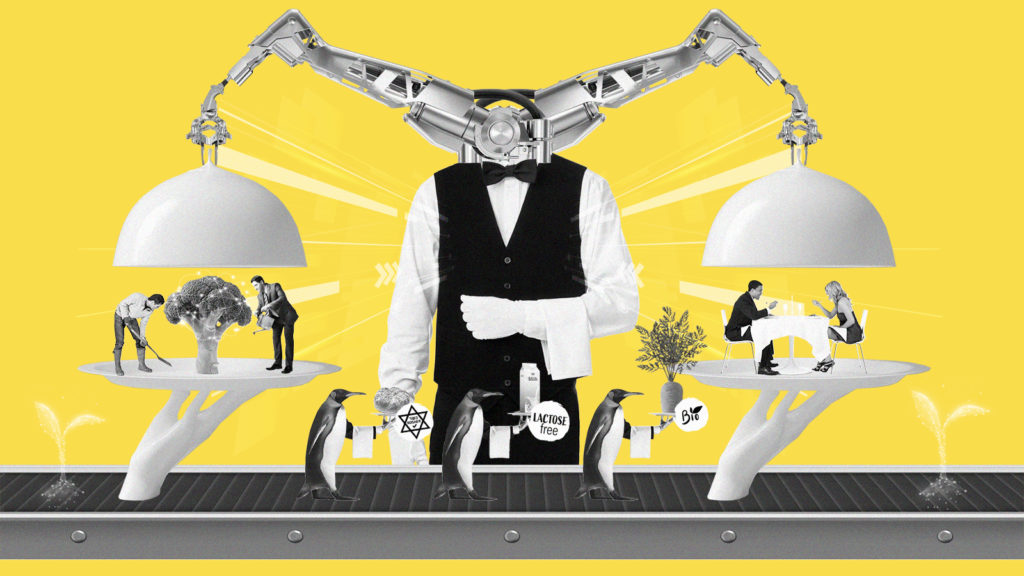Today, more than ever before, consumers are concerned about food. From the desire for a regional origin to certain preparation methods to ingredient intolerance: the target group for food has never been as diversified as it is today. This fact alone would be challenge enough. Because what looks simple to the consumer is highly complex in production. Depending on the requirements, entire production lines have to be converted. So that what’s on the label is really what’s inside.
Cost-efficient thanks to intelligent recipe management
Every production process, no matter how simple or complex, inevitably has a number of necessary elements. It consists of one or more basic ingredients, certain machines, tools and, of course, people. Even in a fully automated process, these essential components are always present.
Another important element of the production process is the recipe for production: a recipe specifies how a production order is produced and which different ingredients must be used, what must be produced, how it must be produced and which work steps are required. Recipes are supported by instructions that guide the operator step by step through the recipe to arrive at a finished product.
Having one recipe is one thing, but managing multiple and different recipes within the production process is quite another story. Accordingly, advanced recipe management is important – especially in light of the agility that food manufacturers now need to be competitive.
Within recipe management, recipes can be completely set up with the help of a configurator and the entire structure of the recipes can be created. It is also possible to work with templates for recipes, as the production method for some products is similar: instead of creating a new recipe over and over again, a template can be started that can be adapted.
Less error-proneness and higher quality
The example of bread production can quickly illustrate the added value: What means many different types of bread for the customer in the end product often has a similar recipe as a basis. For example, dough is needed for each loaf and this dough has to be kneaded. All these similar steps can be recorded in a template, on the basis of which a new recipe can be developed. In this way, processes do not have to be configured for each new loaf of bread.
First and foremost, the use of recipe management significantly reduces the susceptibility to errors, as less configuration is required per production order. After all, the recipes are already defined at order level. In addition, the possibility of version management saves a lot of time. In the instructions belonging to the recipes, the quantities, specific work steps and more of each individual product are precisely defined. This provides the employee with support in checking, which in turn ensures fewer errors, but also higher quality for each end product.
Free of doubt
In addition to recipe management for these products, food manufacturers must also take care of the corresponding production lines. This requires a digital solution that assists in meeting the special conditions. This is not only at the level of the ingredients, but also at the level of the production process itself. By entering special requirements digitally, it can be ensured that the employee schedules a gluten-free production order after a gluten-containing production order, for example, as all parameters are clearly displayed on a planning board. This is the only way to ensure that there are no gluten residues on the line. In this way, the special production orders can be efficiently planned and produced under the right conditions – and expensive recalls or complaints can be avoided.
Do you want to make your production processes more efficient and at the same time take the next step towards the Smart Factory? Read in our expert whitepaper how an integrated MES and WMS system can take your food production to the next level!
